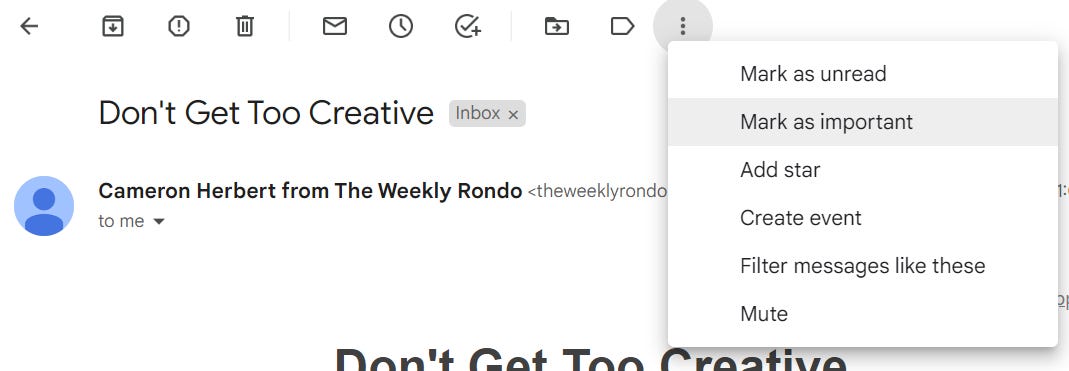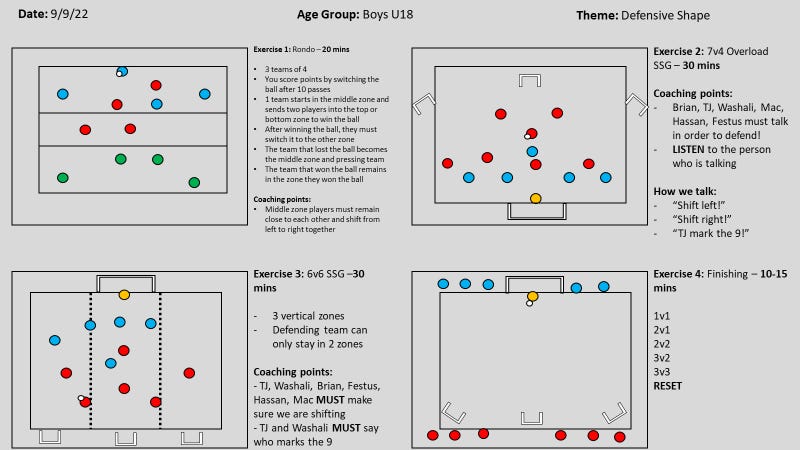Good morning! I want to talk about how we can be more conclusive with our feedback and avoid describing players as "all well rounded, no massive strengths or weaknesses".
Before we start, please check that The Weekly Rondo is marked as “important” in your inbox. Each week just under 50% of readers aren’t being shown the latest issue in their main inbox.
Neat Reads
Neat Reads is a segment where I share an article or podcast that interests me and relates to our weekly theme.
I’ve been travelling while back home in Canada and haven’t found anything that either relates to our topic or worth suggesting.
I’m currently reading Endurance by Alfred Lansing. It’s about the failed expedition across Antarctica led by Sir Ernest Shackleton. It’s a fantastic read about human spirit and overcoming the impossible.
It’s been fun so far.
Stop being so nice.
I’ve said it before that players will always know where they stand with me. Whether they like what I have to say or not, they’ll know that they’re getting an honest opinion from me.
Often times, especially in online analysis but ever present in coaching, we choose to describe players as “all rounders” when we don’t want to say that they’re not good at anything.
Don’t get me wrong, there are some players who genuinely can do a job in any area of the pitch and aren’t exactly specialists. That said, those players have weaknesses that don’t make them a specialist.
Our jobs in youth football are to highlight the strengths of our players and help fix their weaknesses. By choosing to let them fall into the category of “all rounders” we are doing them a disservice because we don’t know how to make them better.
Another issue is that we don’t want to step on toes. The best coaches and analysts can communicate effectively but honestly. If a player is weak at something and we identify that, we can help the player or offer insight on how to improve them.
Football, at the elite level, can benefit from having a technically sound all rounded player. The problem is that at the elite level, the technical ceiling of a player is so high that even if they aren’t a specialist, they can compete with the level of the game because of their ability.
Most coaches work with bad players. Stop allowing all rounded players to persist and improve them.
Exercise of the Week
It was difficult to find an exercise or set of exercises that I felt related to our theme, mostly because how we give feedback and communicate with players is subjective and personal.
That said, I’ve included a session plan that I used when working with my U18 group in Malawi.
The premise is simple, but many of the points give the players responsibility to hold themselves and their teammates accountable. By forcing players to hold each other accountable we create an environment where everyone needs to be aware of how to best express what was done right or wrong effectively.
Conclusion
Thanks for reading this week! If you’ve noticed, I removed the Coach’s Corner section. The Q&A got very little engagement on a weekly basis and the ramblings can fall under the main body of this newsletter.
Share this newsletter with a friend or every single person you have ever met.
See you next week!
Kindest,
Cameron







